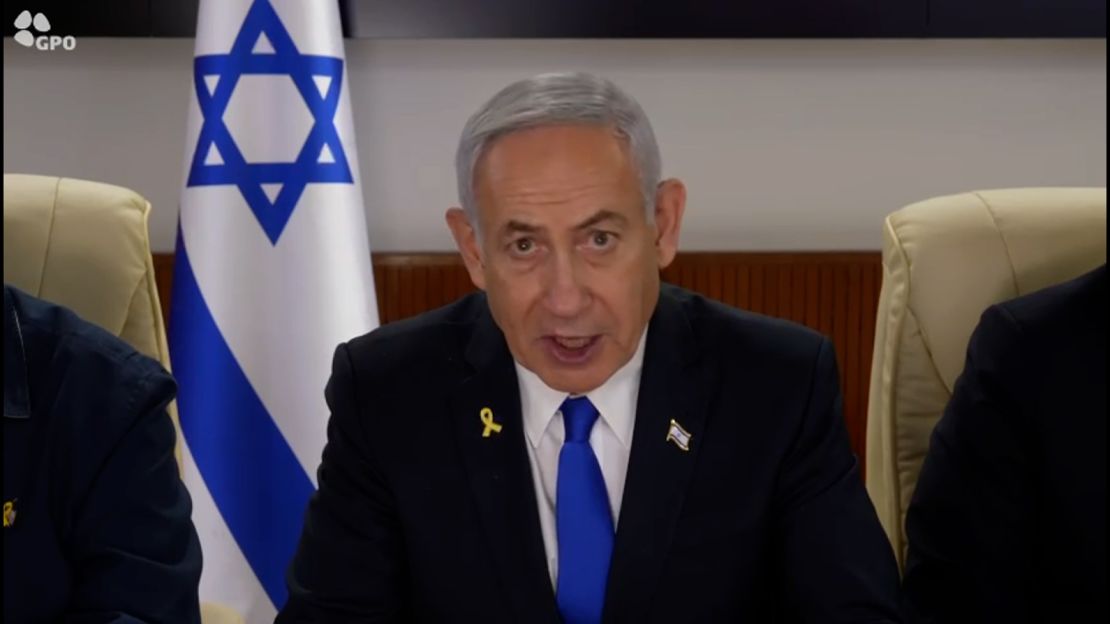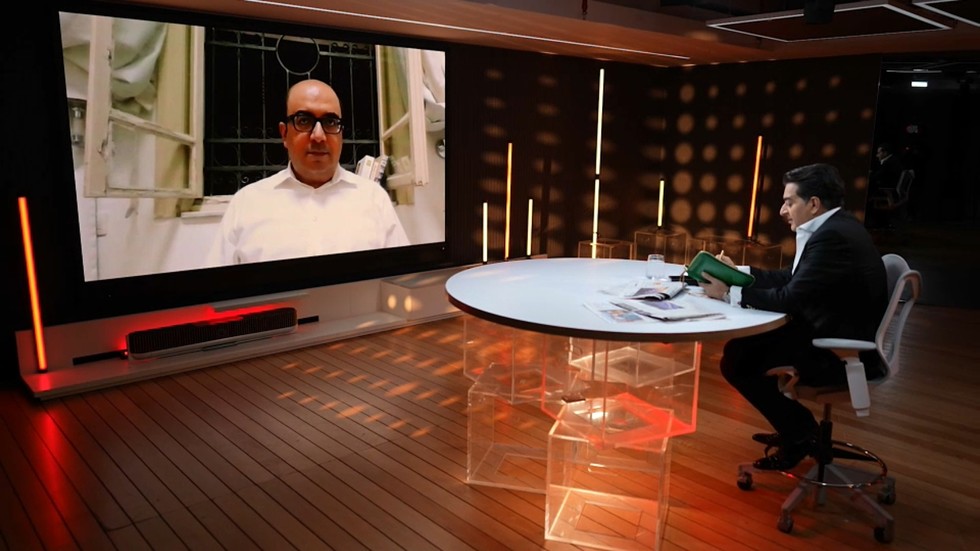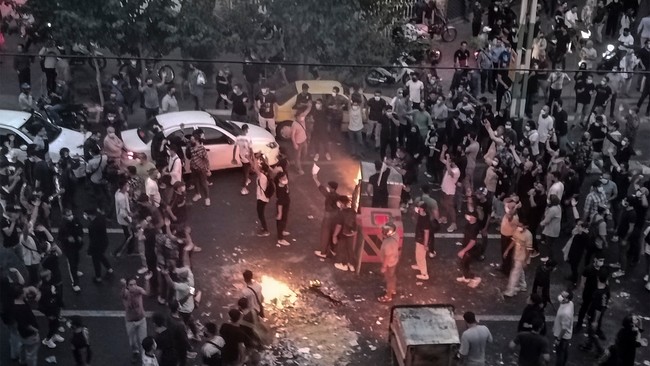What we know about Israel's attack targeting Iran's nuclear program | CNN

Israel launches historic and significant strikes on Iran's nuclear facilities
06:05 - Source: CNN
Israel launches historic and significant strikes on Iran's nuclear facilities
06:05
CNN —
Shortly before sunrise in Iran on Friday, Israel launched the first strikes of its operation against the regime’s nuclear program.
That operation, called “Rising Lion,” had two prongs: Heavy airstrikes against at least one of Iran’s enrichment sites, and more targeted strikes in Tehran to decapitate the regime’s military leadership. It aimed to halt what Israel said was Tehran’s rapid progress in developing nuclear weapons.
At a United Nations Security Council meeting on Friday, Iran’s UN envoy Amir Saeid Iravani said the Israeli strikes had killed at least 78 people and injured more than 320.
Israel’s attack came after years of threats and days of heightened speculation – but without the United States’ blessing. The Trump administration stressed that Israel acted unilaterally and that Washington was “not involved.”
Iran hit back on Friday evening, launching what state media said were “hundreds” of ballistic missiles as part of a “crushing response.” At least 34 people were injured, including one critically, Israeli emergency services said. According to US and Israeli sources, the US helped to intercept the Iranian missile strikes.
Soon afterwards, the volley continued as Israel reported more Iranian missiles incoming early Saturday, with loud booms heard in Tel Aviv and Jerusalem.
Israeli Prime Minister Benjamin Netanyahu said that Israel’s operation would continue “for as many days as it takes” to eliminate Iran’s nuclear threat. Tehran, which insists its nuclear program is peaceful, says it has “no option but to respond.”
Here’s what you need to know.
Iran has not seen such a widespread assault in a single day since the Iran-Iraq war of the 1980s. Israel targeted locations all across the capital city, Tehran, and around the country.
The first explosions tore through Tehran at around 3.30 a.m. Friday (8 p.m. ET Thursday). Videos geolocated by CNN showed flames and smoke billowing from buildings across the city.
Residents of Tehran were blindsided. Many did not expect Israel to strike so swiftly. “I didn’t know what was happening. It was really scary,” a 17-year-old Iranian told CNN, requesting anonymity due to safety concerns.
Shortly after explosions rocked Tehran, Israel also struck elsewhere in the country. Israel’s military said it used jets to strike “dozens of military targets, including nuclear targets in different areas of Iran.”
An explosion was reported at Iran’s main enrichment facility in Natanz, about 250 kilometers (150 miles) south of Tehran.
The United Nations’ nuclear watchdog, the International Atomic Energy Agency (IAEA), confirmed that Natanz had been hit, but said it had not observed an increase in radiation levels in the area. Israel later claimed that it had hit a second nuclear facility in Isfahan.

In a televised address, Netanyahu said Israel had taken action to “roll back the Iranian threat to Israel’s very survival,” and said it would continue its operation for as long as it takes “to remove these threats.”
Netanyahu claimed that Iran had in recent years produced enough highly enriched uranium for nine nuclear weapons.
“Iran could produce a nuclear weapon in a very short time. It could be a year, it could be within a few months,” he said. “This is a clear and present danger to Israel’s survival.”
The Israel Defense Forces (IDF) also said it had destroyed Iran’s ballistic missile launch sites and stockpiles.
Several of the most important men in Iran’s military and its nuclear program were killed in Israel’s strikes.
Maj. Gen. Hossein Salami, head of the secretive Islamic Revolutionary Guard Corps (IRGC), was the highest-profile of those killed.
Israel also said it killed Maj. Gen. Mohammad Bagheri, chief of staff of Iran’s armed forces; Ali Shamkhani, a close aide to Iran’s Supreme Leader Ayatollah Ali Khamenei; and Ali Hajizadeh, commander of the IRGC’s air force.
Iran retaliated swiftly. After an initial barrage of drones Friday morning, Tehran launched ballistic missile strikes against locations across Israel on Friday evening, then again early Saturday morning.
Iran said that it had fired “hundreds of various ballistic missiles” toward Israel, in what it called the “beginning” of its “crushing response.”
Iran claimed that it struck Israeli military-industrial centers used for producing missiles and other military equipment, adding that “field reports, satellite imagery and intercepted intelligence indicate that dozens of ballistic missiles effectively hit strategic targets.”
Following the barrage, Israel’s military claimed that Iran fired fewer than 100 missiles toward Israel and only landed a “few hits.” Some of those hits were from interception debris, Effie Defrin, spokesperson for the IDF, said in a video statement.
Israeli Defense Minister Israel Katz said late on Friday that Iran had “crossed red lines” by firing missiles at civilian population centers and vowed it would pay a “very heavy price” for its actions.
Iran’s President Masoud Pezeshkian urged the Iranian people to remain unified and trust Iran’s leadership.
“The nation needs unity… more than ever,” he added.
The Trump administration – which has been pursuing a diplomatic path with Iran in recent weeks – sought to distance itself from Israel’s attack.
Secretary of State Marco Rubio said Israel’s actions were “unilateral.” Although Israel notified the US ahead of its strikes, Rubio said the US was “not involved” in the attack.
“Our top priority is protecting American forces in the region,” he added. Earlier this week, the US had made efforts to arrange the departure of non-essential personnel from various countries in the Middle East, leading to speculation that an Israeli attack on Iran could be imminent.
Nonetheless, the US helped Israel intercept Iranian missiles on Friday evening, two Israeli sources have told CNN. Other countries in the region also supported Israeli air defenses, one source said.
US President Donald Trump urged Iran to agree to a new nuclear deal “before there is nothing left,” suggesting that follow-up Israeli attacks on the country would be “even more brutal.”
Trump said he had given Iran “chance after chance” to make a deal. “JUST DO IT, BEFORE IT IS TOO LATE,” he wrote on Truth Social, his social media platform.
Under a 2015 nuclear deal struck by former US President Barack Obama, formally known as the Joint Comprehensive Plan of Action (JCPOA), Iran agreed to drastically limit its number of centrifuges and cap uranium enrichment at levels far below those required to make weapons, in exchange for sanctions relief.
But during his first term as president in 2018, Trump withdrew from the JCPOA, saying the “rotten structure” of the agreement was not enough to prevent Iran from developing a nuclear bomb. He ramped up sanctions on Iran and threatened to sanction any country that helped the regime to obtain nuclear weapons.
In his second term, Trump has revived efforts to strike a new nuclear deal with Iran. Just hours before Israel’s strikes, the president cautioned Israel against launching an attack while US-Iran talks are ongoing.
“As long as I think there is an agreement, I don’t want them going in because that would blow it. Might help it, actually, but also could blow it,” Trump said.












